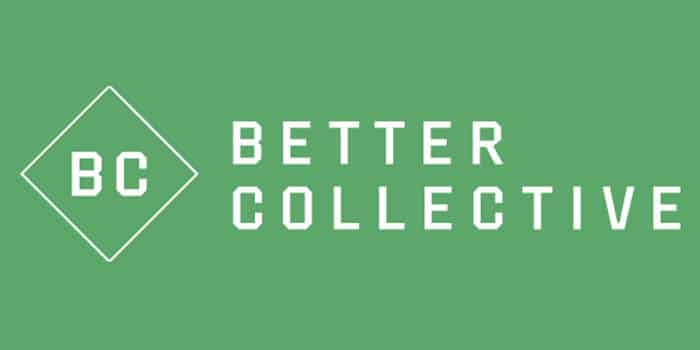
A former employee at Miami’s Miccosukee Casino and Resort is facing serious charges after being accused of stealing money from a slot machine. [Read more…] about Ex-Miccosukee Casino Employee Arrested for Alleged Theft
Casino Gambling Tips and Information

A former employee at Miami’s Miccosukee Casino and Resort is facing serious charges after being accused of stealing money from a slot machine. [Read more…] about Ex-Miccosukee Casino Employee Arrested for Alleged Theft

According to police in the Philippines, two casino junket operators have allegedly received and transferred $3.6 million in ransom money paid by the family of a kidnapped Chinese businessman, Congyuan Guo, who was later found dead.
Also known as Anson Tan or Anson Que, the affluent leader of Ellison Steel, a company that supplies steel to the construction and infrastructure sectors in the Philippines, was reported missing along with his driver, Armanie Pabillo, on March 29. The following day, a ransom note was sent to Guo’s family.
However, on April 9, the bodies of the two men were discovered abandoned on the side of a road in a rural area northeast of Manila. They had been stuffed into nylon bags, with their heads wrapped in duct tape. Authorities reported signs of torture. Police now suspect that the kidnappers never intended to negotiate and that the ransom was simply a diversion.
According to Brigadier General Jean Fajardo of the Philippine National Police (PNP), the junkets, 9 Dynasty Group and White Horse Club, funneled the money into multiple crypto wallets before it was converted into cryptocurrency. At least five individuals are said to have received the money from the two junkets before it was converted into cryptocurrency, with two of them already in custody. Authorities have stated that they are preparing to file charges against the executives of both junket operations, including money laundering, conspiracy to commit kidnapping, and violations of e-commerce laws.
A source familiar with the case described the killers’ motive as one of “punishment.” Guo was involved in a $20 million online gambling deal that fell through. His partners requested a refund, but he was unable to make the payment. The Manila Times suggested that this was a message to not cross the wrong people, or else you would meet a gruesome end.
However, Philippine police have already apprehended several people related to the crime. Among them is David Tan Liao, who is thought to have known Guo personally and is suspected of being the mastermind behind the scheme. Two other individuals have been identified but are still at large at the time of writing of this article.

Thailand’s Prime Minister, Paetongtarn Shinawatra, has shared details about new verification and screening processes that may apply at Thailand’s casinos. The country is now tinkering with the idea of running KYC and AML checks on land-based customers, and foreign nationals in particular, adding to a previous suggestion that would have needed for any local entering the casino floor to have an outsized fixed deposit in their bank.
The previous measure has been criticized as highly impractical, and the new one appears to be similarly restrictive and demanding.
Wealth and criminal background checks for international visitors are good in theory, as they would put Thailand’s fledgling gambling industry on a firm footing and avoid some of the mistakes committed by other jurisdictions, including Australia, whose casino giants have been plagued by regulatory scrutiny due to a poor record in keeping criminals away.
The practicality of such measure, though, would be a challenge to implement in practice, as it is yet unclear what means casinos would have to use to ensure that an individual is not a criminal.
Another issue stems from the fact that wealth checks are generally frowned upon in most of the world, and a person coming to gamble in Thailand’s future casinos may be loath to disclose financial information to the casino.
However, the Prime Minister has remained unfaltering in her commitment to see the project through. Speaking at Empowering Thais, she said:
“Entertainment complexes will not lead Thailand to its worst vices. Developed countries like Singapore, the US, Japan, and the UAE follow this global trend. They know that sand, sun, and sea are not enough any longer. There must be manmade. We don’t want Thailand to miss the trend.”
Thai PM Paetongtarn Shinawatra
Paetongtarn was referring to the fact that many of Thailand’s regional neighbors have already been offering casino gaming and entertainment, and that these complexes are an important part of a broader economic strategy.
However, opposition has proliferated. Academics have pointed out that Thailand is historically bad at regulating industries that are prone to corruption and that gambling could lead to high levels of money-launderings, something that the current administration must be paying attention to given the decision to at least consider the implementation of draconian AML and KYC checks for foreign patrons.
On the other hand, ensuring that only legitimate people enter gaming floors is a sign that Thailand is not betting purely on the casino floors at all. Rather, the emphasis is on developing the entire resort. Fears about the feasibility, perceived economic windfall, and morality of such projects remain.
Critics though will be happy to hear that the government has put efforts to push through with the legislation needed to establish casinos on the backburner due to the immediate issues that have to do with the US-led tariffs against the rest of the world.

After more than 10 years of legal maneuvering, the Sault Ste. Marie Tribe of Chippewa Indians has reached the end of the line in its ambitions to establish a casino near Detroit. The US Supreme Court recently declined to hear the tribe’s appeal, upholding lower-court rulings that blocked the federal government from taking land into trust, a fundamental step for tribal gaming operations.
The Supreme Court’s refusal effectively shuts the door on the Sault Tribe’s aspirations to break into southern Michigan’s more lucrative gaming markets. The tribe previously petitioned the US Department of the Interior to place 71 acres of land near New Boston’s Detroit Metro Airport into federal trust status under provisions of the Michigan Indian Land Claims Settlement Act (MILCSA), paving the way for a new casino.
The Sault Tribe purchased the land at the center of the dispute in 2012 using money from its Self-Sufficiency Fund, established under the MILCSA. The fund was established to help tribes invest in sustainable economic development and support services. However, a 2017 Interior Department verdict ruled that using the fund for a casino project didn’t qualify under the law’s intended uses.
In its appeal, the tribe argued that the denial “forever impaired” its ability to seek economic self-sufficiency. Federal courts remained skeptical, with the D.C. Circuit Court last year confirming the Interior Department’s verdict. The court concluded that simply acquiring land did not meet the Act’s requirement of “enhancing tribal lands,” necessary to tap into certain tribal settlement funds.
This legal loss could deal a significant blow to the tribe’s long-term economic plans and its broader diversification efforts. The Sault Tribe operates five casinos in Michigan’s Upper Peninsula. While these properties perform well within their local markets, they are far from the Lower Peninsula’s population density and tourist destinations.
A February ransomware attack added to the tribe’s recent challenges, disrupting its casino and governmental systems. The incident temporarily suspended hotel check-ins and shut down several community-facing services. While normal operations have since been restored, the attack exposed vulnerabilities in the tribe’s digital infrastructure and caused reputation and revenue losses.
Despite setbacks, tribal officials have not ruled out future economic projects. However, they must contend not only with regulatory hurdles but also with local competition. Two other Michigan-based tribes vocally opposed the Sault Tribe’s Detroit project, underlining the complex challenges inherent in any tribal casino expansion efforts.

Better Collective has appointed the experienced Christian Kirk Rasmussen as its co-chief executive officer in a move that will strengthen the company. Described by CEO Jesper Søgaard as a reliable ally, Rasmussen will help steer the company as it prepares to seize new opportunities.
The appointment was announced by CEO Jesper Søgaard who spoke about the company’s ongoing refocus. In a post on LinkedIn, he commented on the company’s preparation for future success, providing an insight into its plan.
According to CEO Søgaard, Better Collective is seeking to maintain its remarkable momentum and pursue additional organic growth and M&A opportunities. Now a global leader at the intersection of digital sports media, sports betting and entertainment, Better Collective is perfectly positioned to enter new markets and diversify its business.
Søgaard noted that Better Collective launched a comprehensive review of its structure, operations and portfolio to determine the next step it should take. The company determined that it will need to undertake several initiatives in order to enter the next phase of growth.
Søgaard said that, among other strategic initiatives, Better Collective is switching to new global business units. Instead of its current regional structure, the company will split its organization into three global business units, namely publishing, paid media, and esports.
Søgaard explained that this shift will allow his team to “centralize excellence and scale best practices.”
The second pillar of Better Collective’s new plan is strategic resource allocation which will see the company invest more into high-potential areas. At the same time, the company will scale down areas where impact is limited.
In line with that, the company will sharpen its focus on its flagship brands that will define the company’s future success.
Finally, as mentioned, the company will welcome Christian Kirk Rasmussen as co-CEO. The appointee was welcomed by Søgaard who said that he is very excited to have his support.
For more than 20 years, we have been “a band of brothers”, having utilized our individual qualities, competencies, and personalities to drive the development of Better Collective alongside some great colleagues.
Jesper Søgaard, CEO, Better Collective
Søgaard added that Rasmussen will underpin Better Collective’s innovation, product development, and future growth opportunities. Rasmussen commented on his appointment, expressing excitement about this tremendous opportunity:
With the new position, I look so much forward to dedicating much more of my time to innovation and product development across our fantastic House of Brands while I will also be spending more of my time to look into future growth opportunities for our business.
Christian Kirk Rasmussen, co-CEO, Better Collective
In the meantime, Søgaard thanked Better Collective’s incredible team and partners for supporting the company and “shaping the future of digital sports media.”

A new bill that made its way through Senate on Tuesday and garnered overwhelming support (23-5) will now make it possible for jackpot winners to not have to worry about divulging their identity – if they choose not to.
House Bill 3115 received the approval of the Senate and will now be sent to Oregon Gov. Tina Kotek’s office for final approval. This will put Oregon in the company of other states that have recently decided that the anonymity of a winner should be a matter of personal choice and not state law.
Historically, disclosing the identity of the person who won invited public scrutiny and allowed the lottery to operate above board. However, all state lotteries around the United States have been able to burnish their credentials and introduce safeguards that make it virtually impossible for collusion to occur.
Even if a lottery employee did influence the outcome of a draw or tipped third parties, that would not remain unknown for long. Therefore, the reasoning behind the rule that forces winners to disclose their identity has mostly lost its relevance, with most states giving winners freedom of choice.
Up until now, Oregon was a part of 23 states to deny this right to lottery players, but as soon as Gov. Kotek signs the bill (there are no signs that she would seek to oppose it), this will change. Winners certainly feel relieved, as many have voiced concerns over their privacy and safety, being targeted by scammers.
However, the bill was also met with some criticism, as some dissident voices have been heard over the role that courier services could play in all of this, arguing that it benefited said courier services in the end.
Lottery couriers are already under a lot of pressure, after they have made it possible for syndicates to snatch up available tickets for certain draws by fitting in all possible combinations and thus all but guaranteeing a win.
A similar case recently took place in Texas, where a courier-bought ticket snatched the jackpot prompting scrutiny from the regulator, lawmakers, and the governor, who all lambasted the company that had sold the ticket. Soon after, Texas announced that it would prohibit the use of courier sites and apps for the sale of tickets.
Opponents to the Oregon bill have similarly raised concerns over courier services, which are said to be operating in a legally grey area.

It’s been a month since the Mega Millions jackpot fell, and now the group of winners, who still remain anonymous, has come forward to claim the prize.
The $349 million Mega Millions jackpot landed on March 25 after a group of lucky players guessed the winning combination. Early Wednesday morning, the Illinois Lottery announced that the prize had at last been claimed. The group, who opted to stay anonymous and go by the nickname “Blessed,” purchased the winning Quick Pick ticket at Casey’s General Store located at 70 S. Somonauk Road in Cortland. As a reward for selling the winning ticket, the retailer was awarded a $500,000 bonus.
According to the Mega Millions website, one ticket matched all six numbers to win the jackpot, which had an estimated cash option of $161.4 million. Initially projected at $344 million, the final jackpot amount increased due to higher-than-expected ticket sales.
This marks the fourth Mega Millions jackpot claimed in Illinois over the past four years. Noteworthy recent wins include a $1.34 billion prize in 2022, which is the largest in the state’s history. Last year, one lucky iLottery player won $552 million in June 2024, making it the largest online lottery win in US history.
Meanwhile, the most recent winners said that they feel “absolutely ecstatic and feel incredibly blessed.” They also explained they plan to use the money for good, saying the prize “will truly be the gift that keeps on giving.”
This win is one of several massive lottery wins that have happened recently. Just a few days ago, a Kentuckian won the $167.3M Powerball Jackpot, although the winner has not yet come forward to claim their prize.
In addition to the jackpot winner, a ticket sold in Florida matched all five white balls, earning a $1 million prize. The last time the jackpot was won was on January 17, when a player in Arizona claimed a $112 million prize.
According to the Mega Millions website, Tuesday’s drawing produced a total of 619,889 winning tickets across the country. Among them, 18 tickets matched four white balls plus the Mega Ball to claim third-tier prizes of $10,000 each – seven of which doubled their winnings to $20,000 thanks to the Megaplier option.
The jackpot will now reset to $20 million for Friday night’s drawing. Each ticket sold also contributes significantly to education in Illinois. During this jackpot run, total Mega Millions ticket sales reached nearly $24 million, allowing the Illinois Lottery to return over $9 million to the Common School Fund in support of K-12 education.
